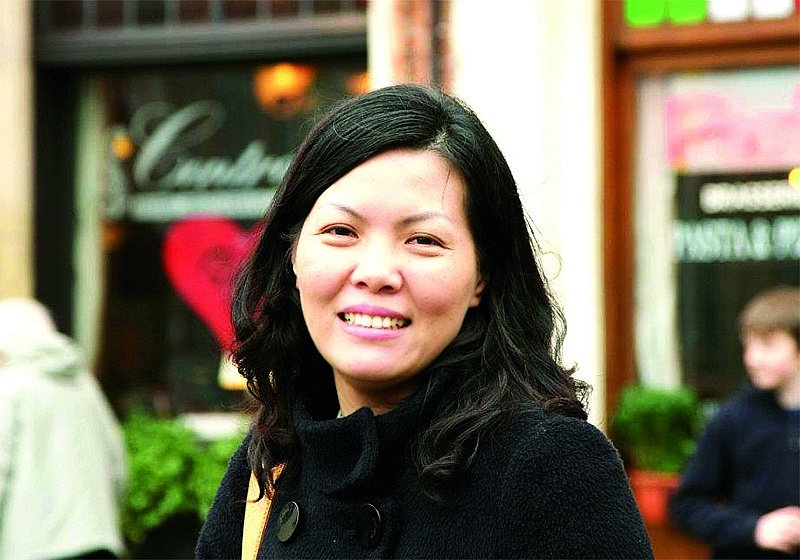Nordic deal to facilitate smoother trade for Vietnam
Trade counsellor Nguyen Hoang Thuy from the Vietnam Trade Office in Sweden told VIR that currently, Vietnam is negotiating a free trade agreement with the European Free Trade Association, of which Norway and Iceland are also members.
 |
| Trade counsellor Nguyen Hoang Thuy from the Vietnam Trade Office in Sweden, photo: moit.gov.vn |
The agreement is expected to see negotiations concluded and inked later this year. At present, Vietnamese goods have to be transited via a third market before directly being exported to markets such as Norway and Iceland.
“Therefore, there is hope that in the near future, Vietnamese goods can directly enter that region with many advantages, not much different from when our goods enter EU countries,” Thuy said.
The negotiations embrace a comprehensive range of topics, including trade in goods and services, rules of origin, sanitary and phytosanitary measures, trade remedies, protection of intellectual property, government procurement, and much more.
Vietnam’s Ministry of Industry and Trade (MoIT) has invited enterprises from Norway, Iceland, and Sweden to participate in an international supply chain connectivity event series on June 6-8, as well as the International Food Expo in November at the Saigon Exhibition and Convention Centre.
“These are all excellent opportunities for businesses from both countries to engage in trade. Vietnamese goods will also have additional opportunities to adapt and meet the requirements for origin tracing, from raw material production to ensuring standards for environmental protection, sustainable products, and meeting the needs of markets with high demands,” said Deputy Minister of Industry and Trade Nguyen Sinh Nhat Tan.
According to the MoIT, the Nordic market is the most demanding market in the EU region. Due to increasing concerns about the climate crisis, EU countries have passed the European Green Deal with impacts that extend beyond the EU territory towards 2050, directly affecting global importers including Vietnam. As a customer with high standards, Northern Europe increasingly seeks sustainable, transparent, and responsible producers and exporters for their final products.
According to Thuy, there are several strategies that Vietnamese businesses need to pay attention to in order to access the Northern European market at this time.
“Firstly, food must be made more environmentally friendly and one of the most important goals is to reduce the use of pesticides by half before 2030,” Thuy said. “Secondly, there is an action plan for a circular economy. Starting from the product design phase, the focus is on sustainability, limiting environmental resource wastage, and ensuring reusability.”
Other aspects include the biodiversity strategy towards 2030, which aims to reduce biodiversity loss and greenhouse gas emissions by encouraging producers to create products that do not contribute to deforestation; and the policy on carbon adjustment mechanisms aimed at preventing carbon leakage by imposing taxes on some imported goods from outside the EU, including Vietnamese products.
Last year, Vietnam’s export turnover from Sweden and Norway hit $946 million and $214 million, respectively, while the figure from Iceland was zero, according to the General Department of Vietnam Customs.
Although the Nordic region, which typically represents Denmark, Finland, Iceland, Norway, Sweden, the Faroe Islands, and Greenland, homes fewer than 30 million people, their import demand is very high with stable growth, and there is still plenty of room for Vietnamese firms to exploit. Imports of this entire region are about $500-600 billion per year, with an average import growth rate of 7 per cent per year over the past five years.
A recent trend among consumers in the Nordic region, who have one of the highest incomes in the world, is their interest in speciality products promoted as beneficial to health and products associated with regional stories. In addition to meeting quality standards and export requirements, stories about origin are also highly valued by consumers in this region.
“My most striking experience with the Nordic market was when I visited a bamboo utensils exporting company in the northern province of Nam Dinh. The Nordic company sent questionnaires not only to the management but also to all the employees of the factory, asking if there were child labourers, pregnant women working, how long the working hours were, and if there was excessive overtime,” said Le Thai Phong, head of Business Administration at the Foreign Trade University.
“This illustrates the market’s rudimentary awareness of social responsibility standards. Therefore, Vietnamese companies targeting this market must pay attention not only to legal regulations but also to safety, sustainability, and social responsibility standards,” he said.
 |
 | Nordic nations staunchly working alongside Vietnam Vietnam emerged as one of the great success stories among Asian emerging economies. Vietnam found its way to thrive economically and even achieved an impressive 8.02 per cent GDP growth in 2022. The improved business environment has contributed to socioeconomic recovery and development, thus regaining the trust of the foreign business community in Vietnam. |
 | Nordic Hub aims to strengthen economic and cultural ties The Sentry and Nordcham Vietnam have launched the Nordic Hub, the first flagship office for Nordcham’s members, signifying a significant step forward in strengthening the economic and cultural ties between Vietnam and the Nordic countries. |
 | Living up to the Nordic model The Nordic region is known for its commitment to the environment and circularity. Zung Nguyen, executive director of the Nordic Chamber of Commerce Vietnam (NordCham), told Nguyen Thu about the opportunities for key Vietnamese actors and stakeholders to learn from the Nordic model. |
What the stars mean:
★ Poor ★ ★ Promising ★★★ Good ★★★★ Very good ★★★★★ Exceptional
Related Contents
Latest News
More News
- Pegasus Tech Ventures steps up Vietnam focus (February 05, 2026 | 17:25)
- The generics industry: unlocking new growth drivers (February 04, 2026 | 17:39)
- Vietnam ready to increase purchases of US goods (February 04, 2026 | 15:55)
- Steel industry faces challenges in 2026 (February 03, 2026 | 17:20)
- State corporations poised to drive 2026 growth (February 03, 2026 | 13:58)
- Why high-tech talent will define Vietnam’s growth (February 02, 2026 | 10:47)
- FMCG resilience amid varying storms (February 02, 2026 | 10:00)
- Customs reforms strengthen business confidence, support trade growth (February 01, 2026 | 08:20)
- Vietnam and US to launch sixth trade negotiation round (January 30, 2026 | 15:19)
- Digital publishing emerges as key growth driver in Vietnam (January 30, 2026 | 10:59)

 Tag:
Tag:
















 Mobile Version
Mobile Version